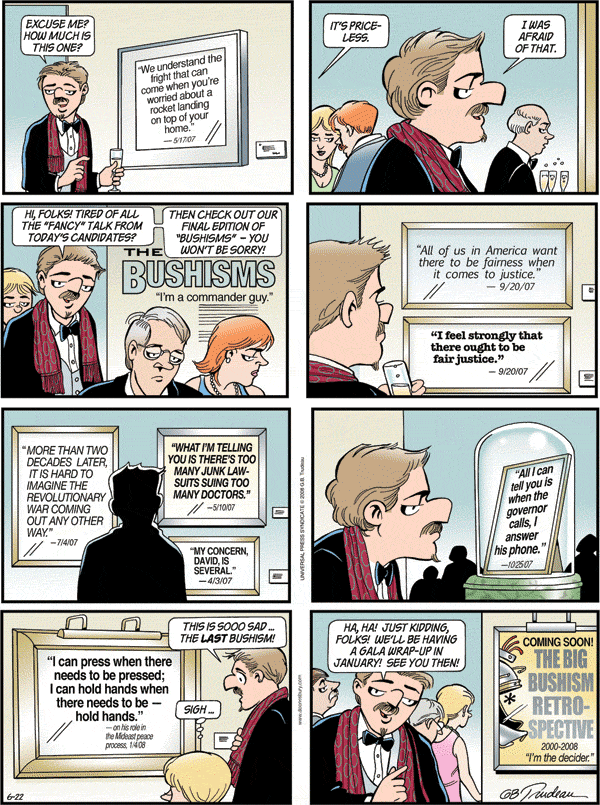Sunday, July 13, 2008
NYT: Suicide Car Blast Kills 41 in Afghan Capital

Suicide Car Blast Kills 41 in Afghan Capital
KABUL, Afghanistan — A huge blast from a suicide car bomb at the gates of the Indian Embassy in Kabul killed 41 people and wounded more than 130 on Monday in the latest sign of a sharp deterioration in Afghanistan, where combat deaths have surpassed Iraq's in the past two months.
It was the deadliest suicide car bombing in Kabul since the American-led invasion of Afghanistan ousted the Taliban in 2001. It comes as Afghan and Western officials have noted with alarm both the weakness of the government of President Hamid Karzai and the growing strength of Pakistani militants in the tribal areas bordering Afghanistan.
Among the victims of the attack, the first in seven years on an embassy in Kabul, were at least four Indian citizens: the Indian defense attaché, a political counselor and two other Indian officials. Six Afghan police officers were also killed. Many of the rest appeared to be civilians.
The fact that the Indian Embassy was attacked raised suspicions among Afghan officials that Pakistani operatives allied with the Taliban had used the bombing to pursue Pakistan's long power struggle with India.
India said it would investigate what the Indian Foreign Ministry called "this cowardly terrorist attack."
Afghan and Western officials have said a recent spate of sophisticated, deadly attacks shows the growing influence of Al Qaeda and other foreign terrorists over Pakistani militants in the tribal areas, and possibly alliances between them. Part of the insurgent strategy has been to carry out suicide bomb attacks in the cities.
Suicide bombers attacked the five-star Serena Hotel in Kabul in January and mounted an elaborate assassination attempt on Mr. Karzai during a military parade in April, an attack that Afghan intelligence linked directly to Pakistan's premier intelligence agency, Inter-Services Intelligence.
Pakistani intelligence has long supported militant groups fighting in Kashmir and Afghanistan as a means to influence regions on its borders and, according to some Western diplomats and military officials, it maintains those links today, including with some elements of the Taliban. While Pakistani militants with links to the Taliban have bolstered their strength in the border areas, the Taliban in Afghanistan have clashed with international troops in the worst summer fighting since the Taliban fell seven years ago. The Taliban have resurfaced strongly in the southern and eastern parts of the country.
In a statement on Monday, Mr. Karzai said the "enemies of peace in Afghanistan" wanted to hurt Kabul's international relationships, "particularly with India."
"Such attacks will not hamper Afghanistan's relations with other nations," he said.
The Indian Embassy is on a leafy thoroughfare close to the Afghan Interior Ministry, in what is supposed to be one of the best-guarded neighborhoods of the city, protected by police roadblocks. But the bomber managed to get through, and rammed a car laden with explosives into the embassy gates.
Witnesses said the bomber struck as two diplomatic vehicles were approaching the gates. Nearby, people were standing in line for visas and shopping in a market. The explosion left body parts and bloodstained clothing strewn in the rubble. Ambulance sirens wailed as residents peered at the wreckage of a dozen vehicles.
Hajji Khial Muhammad, 45, one of those in line for an Indian visa, said he saw more than a dozen people who appeared to be dead. "I was shocked and could not hear anything after the attack," he said. "But I saw at least 10 men and three women in the queue who were probably killed."
Muhammad Ajmal, 26, a shopkeeper in the market, said the explosion had sent goods from his shelves spilling out. "I could barely stand up," he said.
A spokesman for the Taliban, Zabiullah Mujahed, denied responsibility. "The suicide bomb attack was not carried out by Taliban," he said by telephone. "We strongly reject that accusation. We don't know who carried it out."
The Taliban frequently disavow knowledge of attacks that cause heavy civilian casualties.
Pakistani intelligence, which regards Afghanistan as its backyard, fiercely resents India's growing influence here, Afghan officials said. The Afghan Interior Ministry said it believed that the attack was carried out in collaboration with "an active intelligence service in the region."
The ministry did not elaborate on the identity of that service. But relations between Afghanistan and Pakistan have become so strained after a series of attacks that Mr. Karzai has threatened to send troops across the border to attack militants operating from bases in Pakistan.
India, meanwhile, is a close ally of Afghanistan. It is spending $750 million on building roads and power lines here in what has become India's biggest bilateral aid program ever. It has opened consulates in several parts of the country and promoted initiatives to offer scholarships for Afghan students, while Afghan television has shown Indian soap operas.
But there have been some challenges to India's influence. Several Indian workers have been killed in recent months, and Indian television shows have been restricted because of religious objections. Senior Indian Foreign Ministry officials have said for months that they were worried about the safety of Indian personnel in Afghanistan.


